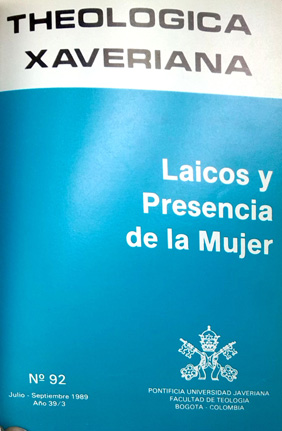Abstract
El más grande representante de la teología alejandrina del s. m, en pocas ocasiones, según los datos que han sobrevivido a los incidentes del camino, usó probablemente este título de María. El historiador Sócrates, que escribió su Historia Eclesiástica consultando con cuidado las fuentes de la antigüedad de que disponía, escribe sobre la disputa en Constantinopla acerca del título Theotókos que culminó con la definición de Efeso, unos 10 años después de acontecida (termina en los sucesos de Constantinopla de 439). En el L. VII, c. 22, habla de la defensa que Nestorio hizo de su presbítero y consejero Anastasio, el cual había predicado que "Nadie ha de llamar a María Theotókos, pues María fue humana, y Dios no puede nacer de un humano". Muchos condenaron esta actitud de Nestorio que contradecía la costumbre de los Padres antiguos.
This journal is registered under a Creative Commons Attribution 4.0 International Public License. Thus, this work may be reproduced, distributed, and publicly shared in digital format, as long as the names of the authors and Pontificia Universidad Javeriana are acknowledged. Others are allowed to quote, adapt, transform, auto-archive, republish, and create based on this material, for any purpose (even commercial ones), provided the authorship is duly acknowledged, a link to the original work is provided, and it is specified if changes have been made. Pontificia Universidad Javeriana does not hold the rights of published works and the authors are solely responsible for the contents of their works; they keep the moral, intellectual, privacy, and publicity rights.
Approving the intervention of the work (review, copy-editing, translation, layout) and the following outreach, are granted through an use license and not through an assignment of rights. This means the journal and Pontificia Universidad Javeriana cannot be held responsible for any ethical malpractice by the authors. As a consequence of the protection granted by the use license, the journal is not required to publish recantations or modify information already published, unless the errata stems from the editorial management process. Publishing contents in this journal does not generate royalties for contributors.


